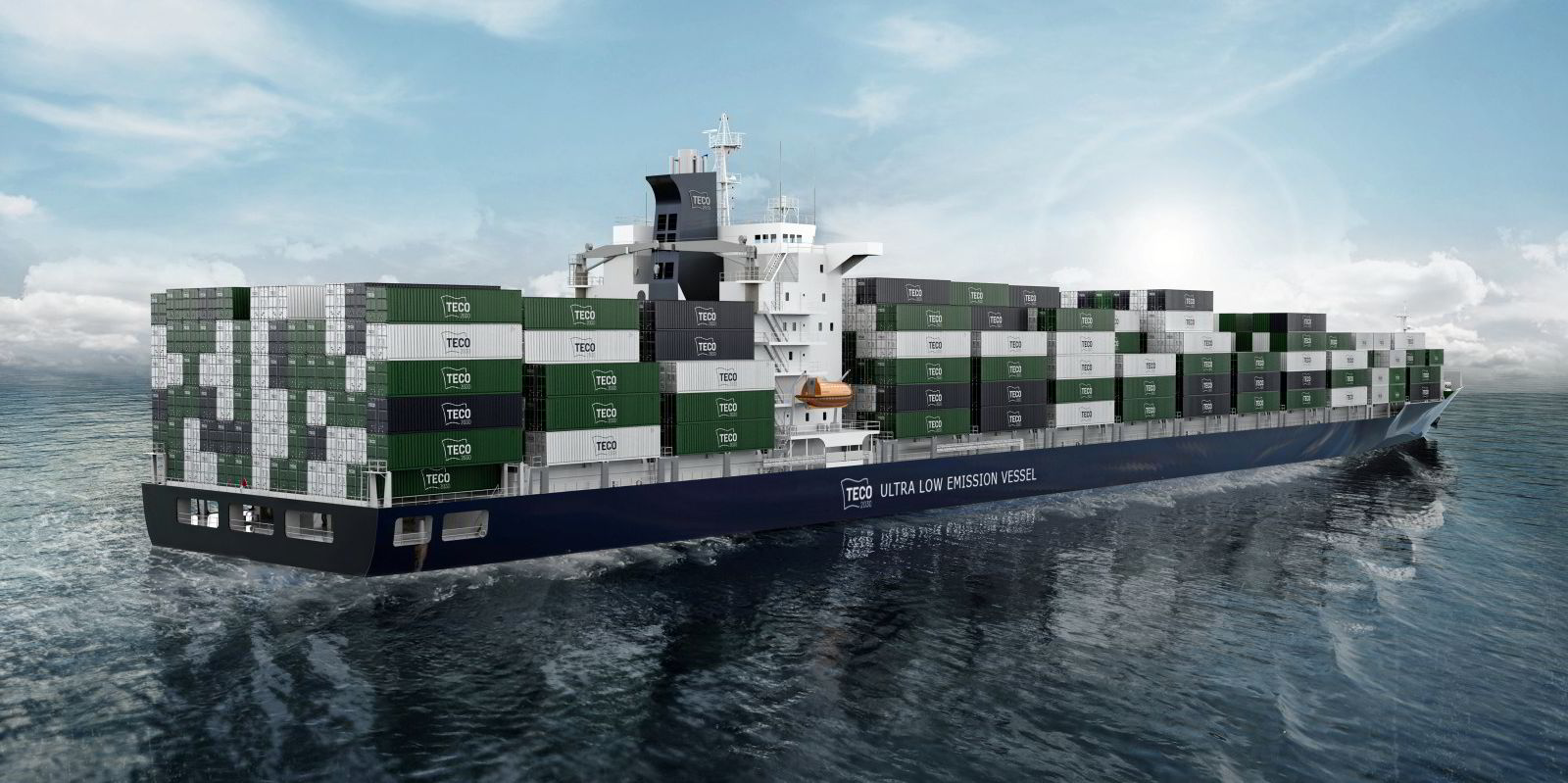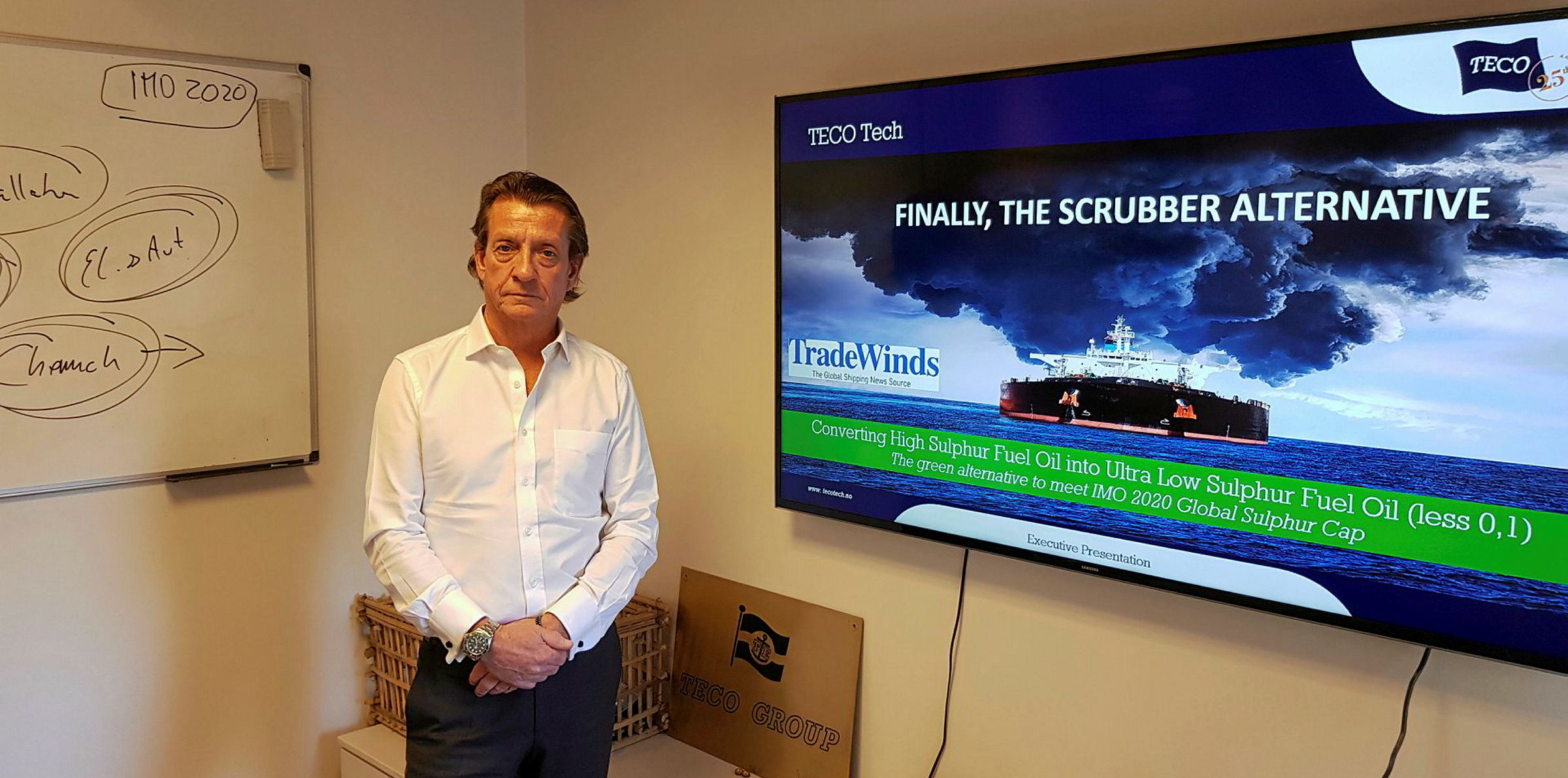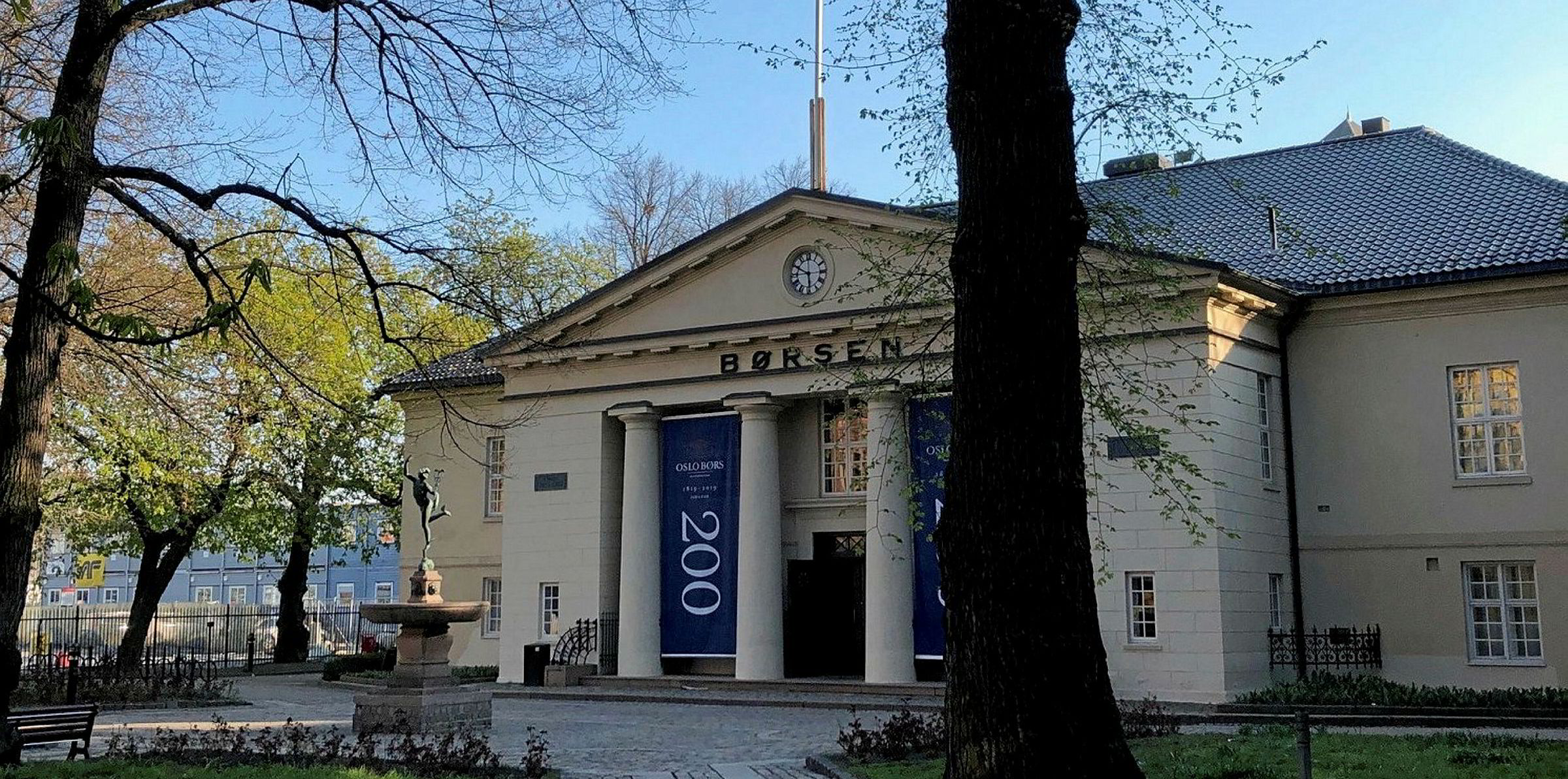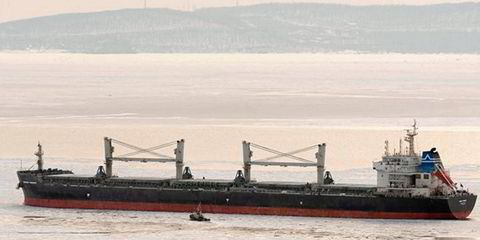The green marine spin-off of Norway’s Teco Group has unveiled a super-scrubber system, dubbed the Teco 2030 Future Funnel, that will employ onboard carbon capture and storage and deal with other major maritime pollutants.
Teco 2030, which listed in Oslo in September via a $43m initial public offering as it revealed plans to develop fuel-cell propulsion systems, said the funnel kit will provide “the most comprehensive emission reduction system” for ship operators wanting to keep using fossil fuels.
The modular exhaust-gas cleaning system is claimed to work with all fossil-fuel types and to comply with existing International Maritime Organization regulations on SOx emissions. It is also ready for expected future regulation of particulate matter, black carbon, NOx and CO2, Teco 2030 said in a video.
“This will be the most comprehensive emission reduction system for shipowners looking towards future-proofing their vessel operations on fossil fuel,” Teco 2030 chief development officer Shyam Thapa said.
'Significant contributer'
The company added that the system will be in line with the initial IMO greenhouse-gas (GHG) strategy and enable shipowners to receive classification society notations for ultra-low emission vessels and low emission vessels even when running on high-sulphur fuel oil.
“Since more than 40% of the fuel mix in 2050 is expected to be fossil fuels, the Future Funnel will be a significant contributor to the IMO GHG goals,” Tore Enger, chief executive of Teco 2030, said.
Developed in collaboration with Teco 2030’s long-term partner, Austrian power systems developer and tester AVL, modules including the carbon capture and storage unit will become available to fit in early 2021.
“This technology will also be an add-on to vessels that already have installed exhaust-gas cleaning systems,” Thapa said.
Teco 2030 had built two prototype Future Funnel scrubbers ahead of its IPO and signed a letter of intent for their use with a European shipyard, but at that stage they still required development.
Last month, Teco 2030 brought in a former Wartsila executive, Stian Aakre, to spearhead its development of hydrogen fuel cells for shipping. It is working on a 100-MW fuel cell with AVL.
Ahead of the IMO 2020 sulphur regulation deadline, Teco was working on development of a heavy fuel upgrader and desulphurisation unit that would deliver emissions with a sulphur content of less than 0.1%.






